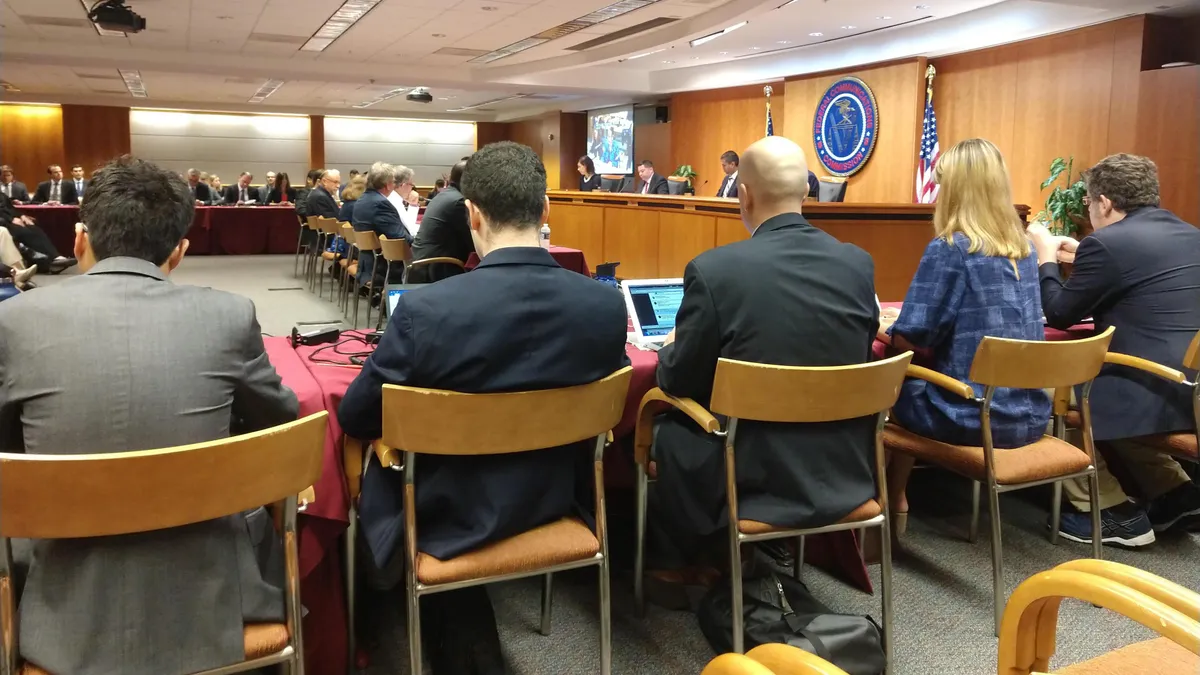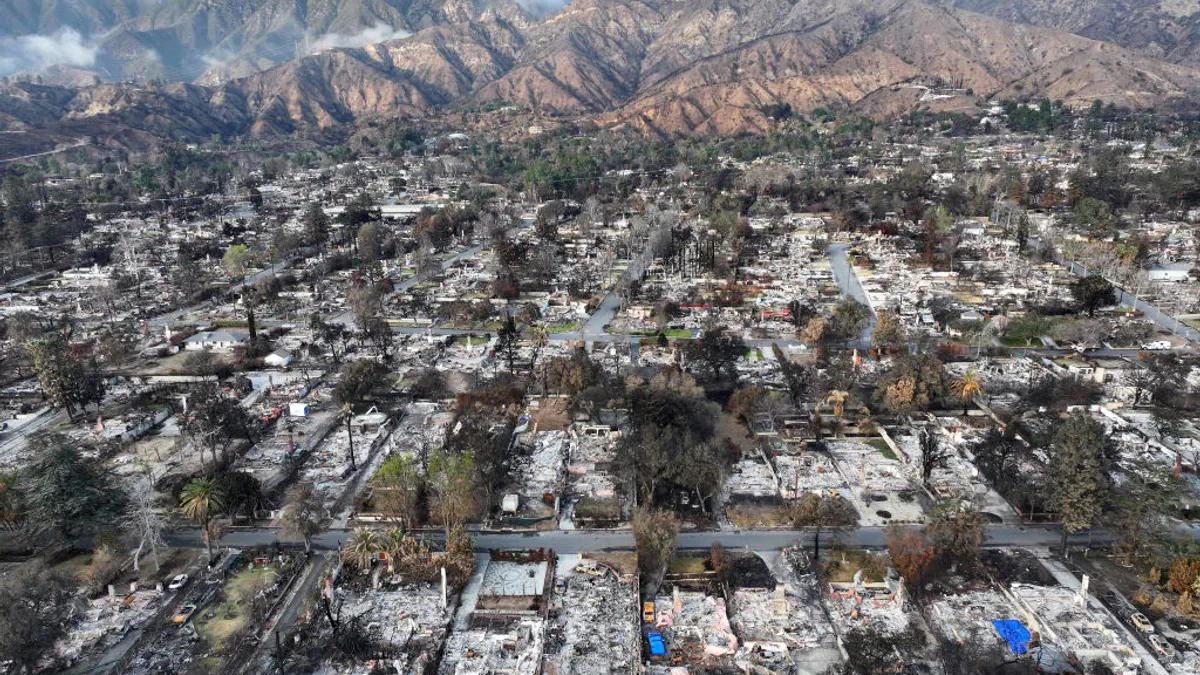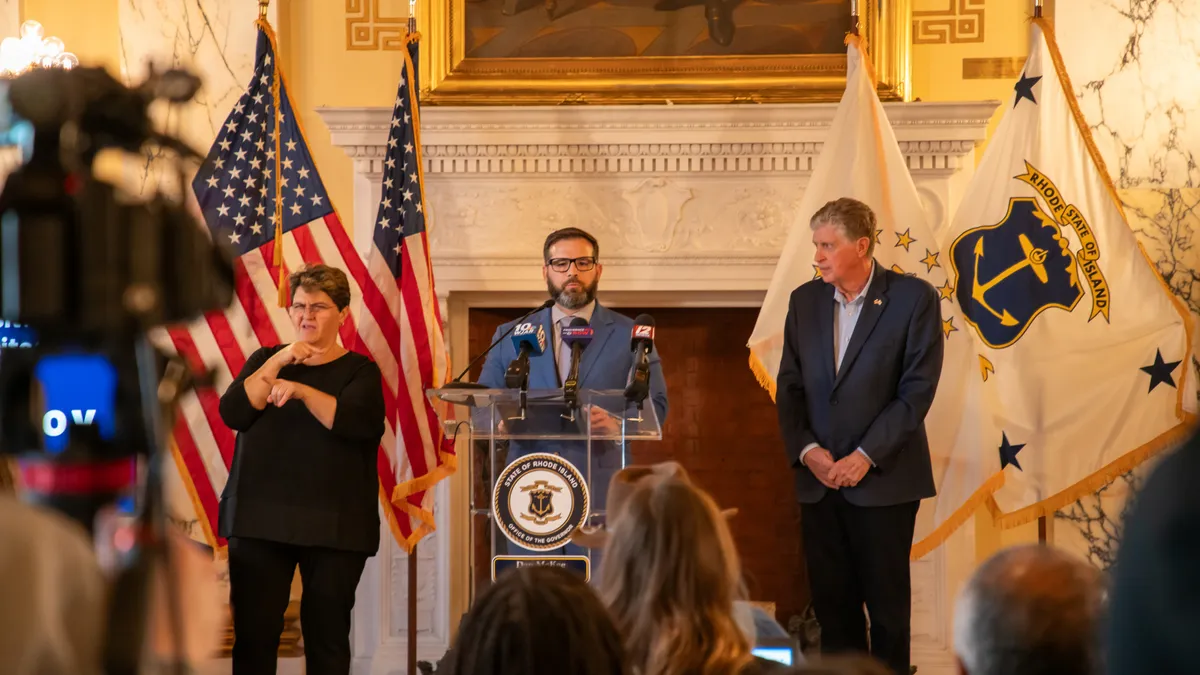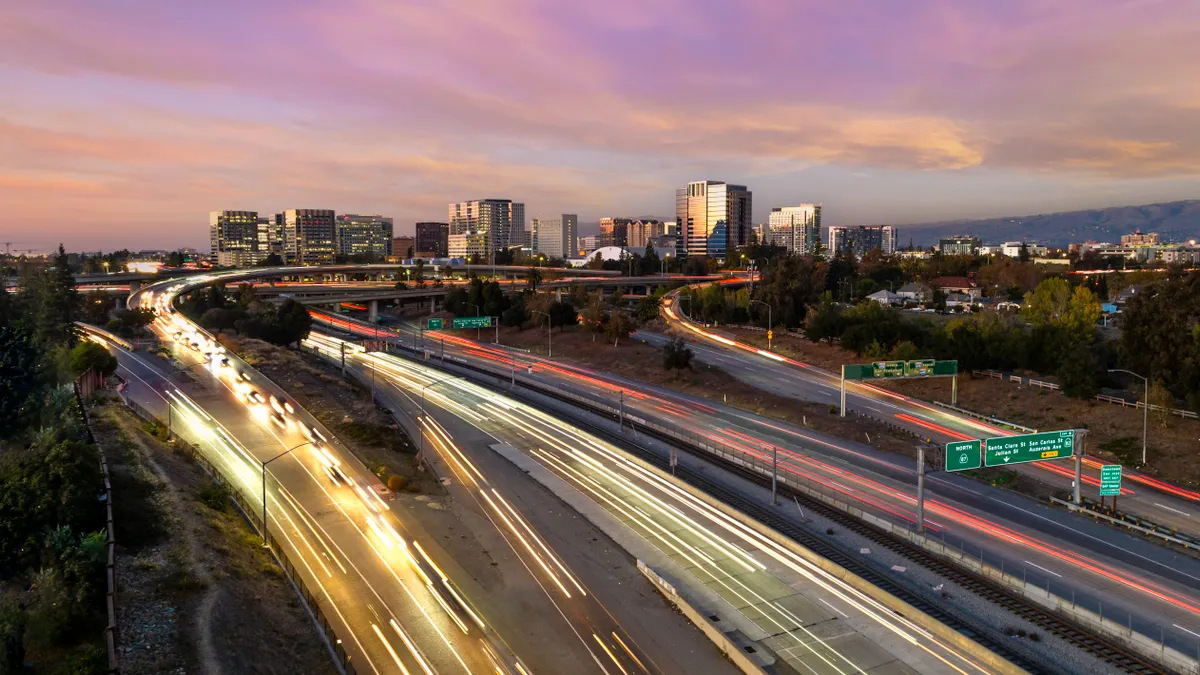The Federal Communications Commission (FCC) voted Wednesday to approve a controversial plan that would streamline the deployment of 5G infrastructure, despite objections from many, including groups that represent city and state governments.
While advocates say the ruling will help accelerate the installation of infrastructure like small cells and prevent fees from getting out of control, opponents said it could wreak havoc on city-level initiatives around digital inclusion which are funded by those fees. The action passed 3-1, with Commissioner Jessica Rosenworcel as the lone dissenter.
Under the FCC’s ruling, the fees that cities and other local governments charge telecom companies for installing infrastructure are capped to only cover the government’s costs. That in part curbs what FCC Commissioner Michael O’Rielly derided during the commission’s meeting as "exorbitant fees, ridiculous practices and prolonged delays," in major cities deemed “must-serve” due to their large populations and economic dominance.
But the effects on cities that have already started to move on deploying 5G infrastructure could be profound, Rosenworcel warned, as caps on fees could result in lost revenue to city coffers from providers.
She pointed to the example of San Jose, CA, which signed a deal with three major telecom providers to install small cells on government-owned light poles, and is using the money raised from the public-private partnership (P3) to fund parts of its Broadband and Digital Inclusion Strategy and increase internet access.
Rosenworcel also pointed to similar efforts in large cities like Little Rock, AR and Austin, TX, as well as smaller communities like Troy, OH, all of which could see their agreements with telecoms companies on 5G deployment hurt by the FCC’s ruling.
"This decision irresponsibly interferes with existing agreements and ongoing deployment all across the country,” Rosenworcel said. “There are thousands of cities and towns with agreements for infrastructure deployment, including 5G wireless facilities, that were negotiated in good faith. So many of them could be torn apart by our actions here. If we want to encourage investment, upending commitments made in binding contracts is a curious way to go."
Opponents also worried that the new rules represent the federal government usurping local control of some issues, something that had already brought criticism from the U.S. Conference of Mayors and the National Association of Counties. Before the hearing, a joint letter from the National Governors Association and National Conference of State Legislatures raised similar concerns.
They had balked at the idea that the FCC ruling specifies fee levels and that its guidance on the aesthetics of small cells and undergrounding requirements left too little wiggle room for localities.
There did seem to be broad agreement on refining the so-called “shot clock” periods of review — giving localities 60 days to review small cells placed on existing infrastructure and 90 days for new builds while also providing for a restart if an applicant is notified of "material deficiencies" within 10 days — as cities have been criticized for apparent delaying tactics on review and approval.
"[Some localities] would like to continue extracting as much money as possible in fees from the private sector and forcing companies to navigate a maze of regulatory hurdles in order to deploy wireless infrastructure,” FCC Chair Ajit Pai said. “These actions are not only unlawful, they're also short-sighted. They slow the construction of 5G networks and will delay, if not prevent, the benefits of 5G from reaching American consumers.”
But Rosenworcel warned a one-size-fits-all approach not only may violate the 10th Amendment to the U.S. Constitution, which says that other levels of government may legislate where the federal government does not, but also is not practical.
"Instead of working with our state and local partners to speed the way to 5G deployment, we cut them out,” she said. “We tell them that going forward, Washington will make choices for them about which fees are permissible and which are not, about what aesthetic choices are viable and which are not, with complete disregard for the fact that these infrastructure decisions do not work the same in New York, NY and New York, IA.”
In a separate statement, Utilities Technology Council (UTC) president and CEO Joy Ditto warned the FCC “is overstepping its authority under the Communications Act,” which it said does not allow the commission to impose fee caps.
Closing the digital divide?
In approving the new measure, commissioners said it would help close the digital divide between rural and suburban areas and urban areas, the latter of which traditionally get more investment.
Commissioner Brendan Carr, who sponsored the proposal and spent over a year traveling the country discussing it, said the new rules would save $2 billion in regulatory costs and would result in $2.4 billion in new investment in 5G infrastructure, of which 97% would go to rural and suburban areas.
"By making small cell deployment less expensive, the FCC will send a clear message that all communities, regardless of size, should share in the benefits of this crucial new technology," Carr said.
That economic boon brought support from others in the industry. In a statement, Meredith Attwell Baker, president and CEO of trade association CTIA, said the ruling "will promote billions in investment and significant job creation." Meanwhile on Twitter, Carr touted a letter signed by more than 20 members of Congress saying that capital must be invested in deployment and so freed up for rural areas.
NEW: Great to see so many Members of Congress support the smart infrastructure policies the FCC will vote on tomorrow. These common sense ideas are key to ensuring that every community benefits from the economic opportunities enabled by 5G & next-gen broadband. #FirstTo5G pic.twitter.com/bKPa3TX9AY
— Brendan Carr (@BrendanCarrFCC) September 25, 2018
But Rosenworcel took issue with supporters’ beliefs that it will spur investment in 5G in rural and suburban areas. She said the full ruling does not include "a single commitment" to invest more in rural communities, and noted that not a single carrier has told regulators they will alter their capital investment plans, something she said shows the “hard economics” of functioning in rural areas has not changed.
Ditto shared a similar view on the difficulties of investing in rural communities.
“[The] reality is that the digital divide is increasing as wireless and wireline communications providers have either discontinued or significantly reduced the quality of their services in rural America,” she said. “Reports commissioned by state agencies have concluded that lower pole-attachment fees have no impact on the deployment of broadband services in rural America.”
"When I think about success, when I think about winning the race to 5G, the finish line is not the moment we see next gen deployments in New York City or San Francisco ... Success can only be achieved when all Americans, no matter where they live, have a fair shot at fast, affordable broadband.”

Commissioner Brendan Carr
Federal Communications Commission
In a press conference after the vote, Pai assured those present that the ruling would benefit everyone, not just those in major urban areas.
“From a 60,000-foot level, our goal is to make sure that everyone, everywhere in this country is able to benefit from 5G technologies,” he said. “That includes the constituents of localities that for too long have been on the wrong side of the digital divide. For example, there are many lower-income areas in urban parts of this country that don't have the same digital opportunities like folks in better-off parts of that city might.”
And while telecom companies have touted the rollout of 5G in major cities as they jostle for market dominance, Carr said that successful adoption is about far more than taking care of residents in major urban centers.
"When I think about success, when I think about winning the race to 5G, the finish line is not the moment we see next gen deployments in New York City or San Francisco,” he said. “Success can only be achieved when all Americans, no matter where they live, have a fair shot at fast, affordable broadband.”




















